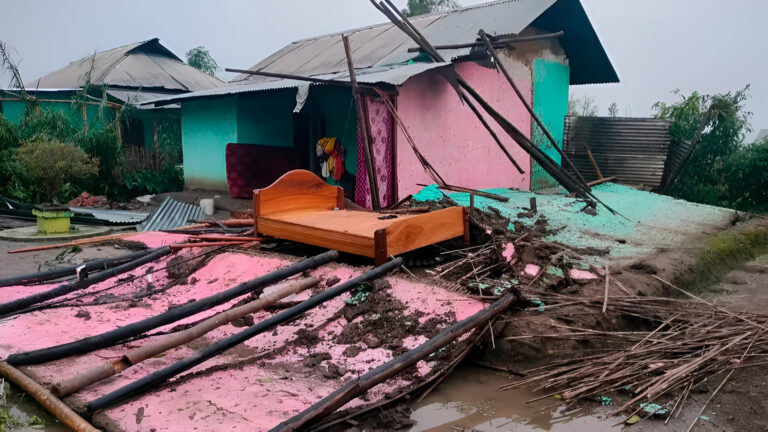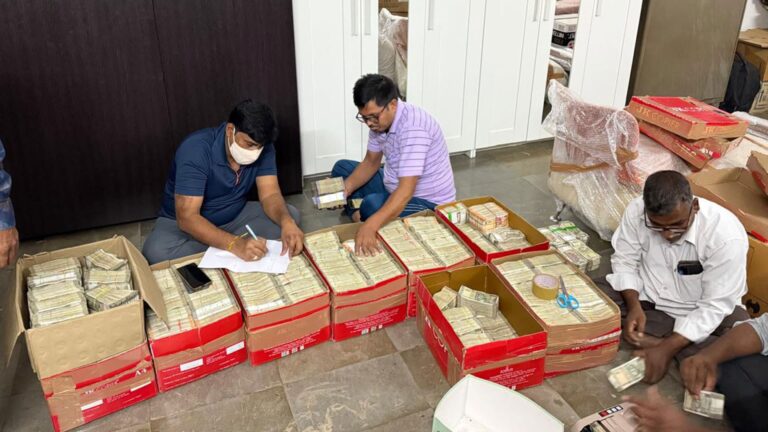Manipur: Kuki militants fire shots at farmers
Summary of the Incident:
In recent developments in Manipur, Kuki militants have been accused of attacking farmers in various valley regions, notably firing shots and causing injuries to civilians engaged in agricultural activities. These incidents reflect ongoing tensions amidst broader ethnic and territorial conflicts between the Meitei and Kuki communities in the state. Protesters have criticized the deployment of central forces like the BSF for inadequate protection, demanding state forces’ involvement to ensure security in sensitive agricultural zones.
A Detailed Look at the Crisis in Manipur
What Sparked the Violence?
Manipur has been embroiled in ethnic and territorial disputes, particularly between the Meitei community in the valley and the Kuki tribes in the hills. These tensions have escalated into violent confrontations, with agricultural zones and foothill areas becoming hotspots of conflict. Farmers and volunteers guarding villages have often been caught in the crossfire, leading to widespread fear and displacement.
The Recent Attacks: A Timeline
- Targeted Gunfire at Farmers:
- In the latest attacks, Kuki militants allegedly fired at farmers working in paddy fields near sensitive regions like Tingri and Khongnangpokpi. Villagers have reported numerous injuries and heightened fear of cultivating their lands under such threats.
- Protests Over Central Force Deployment:
- Women and community groups in affected villages have staged protests, opposing the deployment of BSF personnel. They argue that central forces have been ineffective in deterring militant attacks, with some accusing them of being mere spectators during violent incidents.
- Broader Clashes:
- Separate incidents saw bombings and shootings in areas like Kangchup and Koutruk, displacing entire communities and forcing many to seek refuge in relief camps.
The Role of Security Forces
Criticism has mounted against the central government’s reliance on central forces, like the BSF and CRPF, in conflict zones. Protesters have pointed out instances where these forces failed to respond adequately to militant attacks, leading to demands for state police or local units to take charge of security operations.
Ethnic and Political Implications
The violence reflects deeper ethnic divisions in Manipur, where issues of land ownership, autonomy, and representation remain contentious. Local organizations and families of victims have demanded decisive action from the state government, including:
- Implementation of the National Register of Citizens (NRC) to address alleged illegal immigration.
- Review and withdrawal of the Suspension of Operations (SoO) agreement with Kuki militants.
Impact on Civilians
For farmers and local communities, the violence has disrupted daily life. Agricultural activities—a key livelihood for many—have been severely affected, with vast tracts of farmland lying uncultivated due to safety concerns. The psychological toll on villagers, particularly women and children, is significant, as many live in constant fear of further attacks.
A Call for Peace
The ongoing unrest highlights the need for:
- Strengthened Security Measures: Deploying trained state forces familiar with local terrains and community dynamics.
- Dialogue and Mediation: Encouraging peaceful resolution through inclusive talks involving all affected communities.
- Government Accountability: Ensuring swift and transparent responses to incidents, rebuilding trust in state mechanisms.
FAQs
- Why is there conflict between the Meitei and Kuki communities?
The conflict stems from long-standing ethnic divisions, disputes over land, and competition for political representation and resources in Manipur. - What has been the role of central forces in the unrest?
Central forces like the BSF and CRPF have been deployed for security but are criticized for their inability to prevent militant attacks effectively. - What are the demands of the protesting villagers?
Protesters demand the withdrawal of central forces and the deployment of local state forces for better protection. They also call for stricter action against militants. - How has the violence affected local agriculture?
Fear of attacks has kept farmers away from their fields, leading to a decline in agricultural productivity and economic strain on farming communities. - What solutions can address the ongoing violence?
Peace can be fostered through community-driven dialogue, enhanced security by local forces, and stricter policies to address illegal activities in the region.



